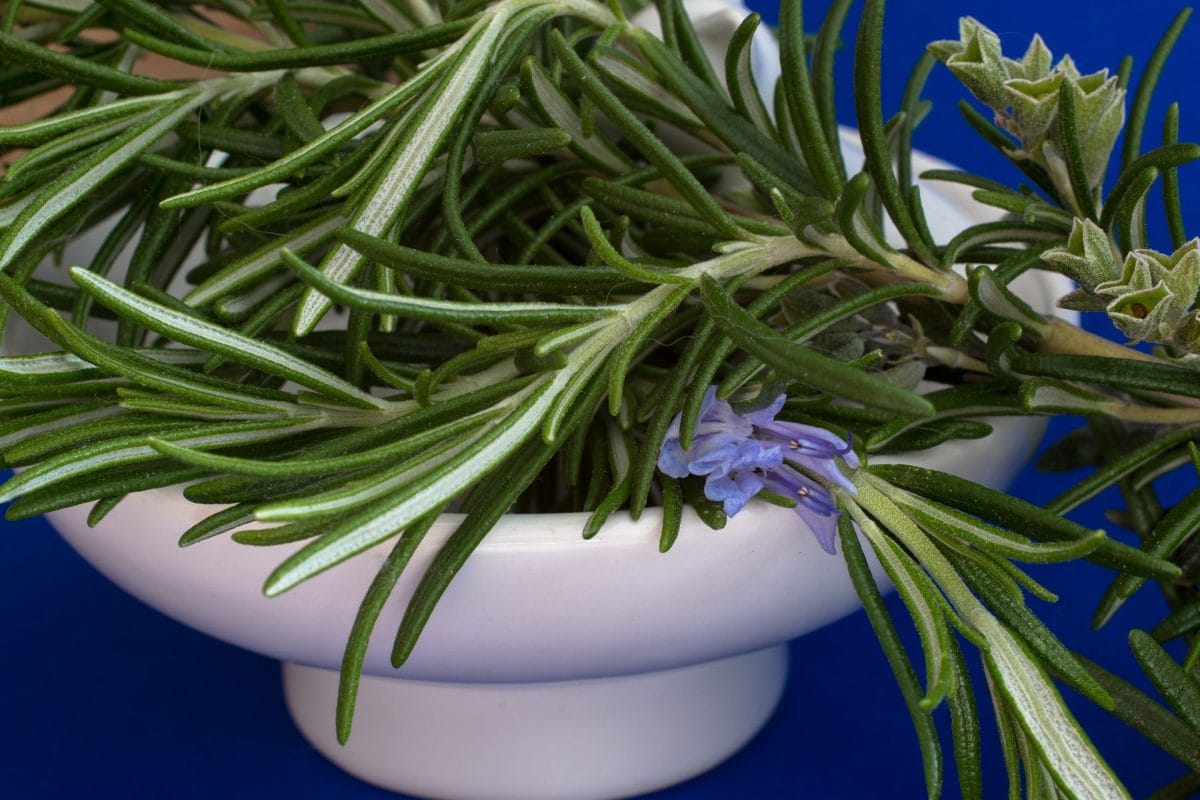Does the smell of rosemary evoke the same memories for you as it does for me?
Family roast dinners, a butterflied leg of lamb thrown onto a summer barbecue, languid holidays around the Mediterranean?
Evidence is piling up that smells can be remarkable triggers of memory, much stronger than sight or sound, and the strong and distinctive scent of rosemary is particularly powerful.
Folk medicine also associates rosemary with having a good memory. If you know your Shakespeare, Hamlet in particular, you’ll remember that Ophelia tells us ‘There’s rosemary, that’s for remembrance’. We also know that ancient Greek scholars wore garlands of rosemary during academic exams, hoping perhaps that a quick turn around the herb garden would serve instead of hours studying.
I bring a box of rosemary to most of the funeral ceremonies I lead and invite everyone to take a sprig as they leave (unless the family prefers an alternative). There’s strong symbolism – carrying rosemary, the herb of remembrance, out of the chapel is a visual reminder that they carry with them memories of the person who has died. And people instinctively create an olfactory memory as well – they almost always smell the rosemary as they take it.
But there’s even more going on, particularly if you’re interested in ancient traditions surrounding death and funerals.
Rosemary has a deep-seated connection with the passing of loved ones that goes back millennia. Since pre-historic times, our ancestors have used rosemary in burial rites. We know that, as far back as 1000BC, the ancient Egyptians were using rosemary, along with other essential oils, to embalm the bodies of their dead.
There’s evidence that Romans carried rosemary with them during funeral processions and then left the sprigs with the body. In the early sixteenth century, English statesman and politician, Sir Thomas More, wrote of rosemary: “Whence a sprig of it hath a dumb language that maketh it the chosen emblem of our funeral wakes and in our burial grounds.” Partly, we think, it’s because, as an evergreen plant, rosemary is associated with eternal life.
And that brings us to another reason rosemary is so suitable for funerals – the idea that rosemary represents eternal love as well as eternal life. Again from the sixteenth century, the celebrated Doctor of Divinity, Roger Hacket, said in his ‘fruitful sermon on marriage’: “Speaking of the powers of rosemary, it overtoppeth all the flowers in the garden, boasting man’s rule. It helpeth the brain, strengtheneth the memorie, and is very medicinable for the head. Another property of the rosemary is, it affects the heart.”
Whether because of its evocative smell, the old wives’ tales of medicinal properties or the symbolism of eternal life and love, rosemary has played a long and honourable part in our commemoration of people who’ve died.
Next time you attend a funeral, you might consider donating the money you would have spent on flowers to a favourite charity and taking instead a prettily bound bouquet of rosemary.
You’ll be following the customs of our ancestors stretching back thousands of years.
Image by A_Different_Perspective from Pixabay



